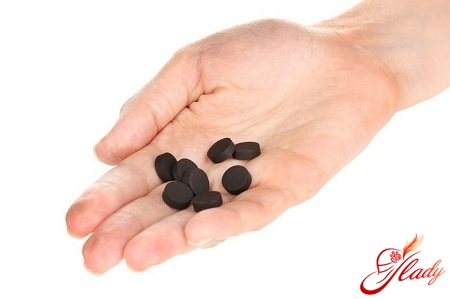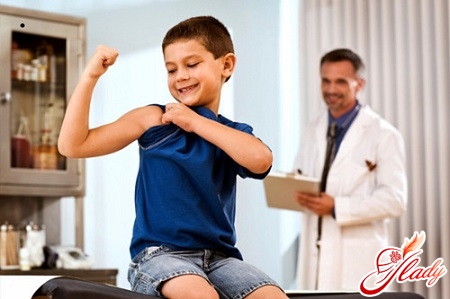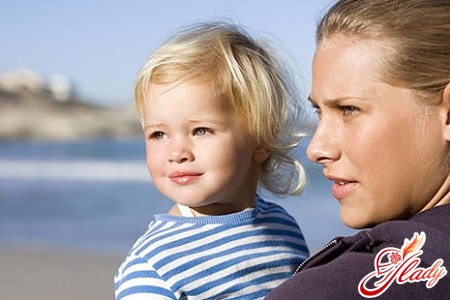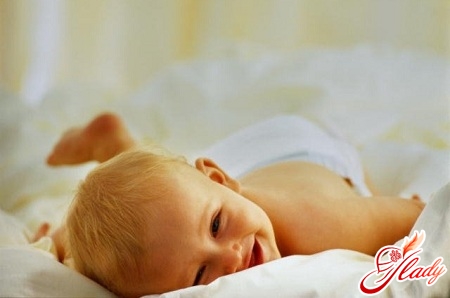 Any pregnant woman is impatient andwith bated breath awaits the birth of her baby. Pictures of cute little angels flash through her imagination. However, the babies that a mother sees in the delivery room are often very far from her expectations. But just a month or two will pass and the babies will change beyond recognition. So, what happens to a newborn baby in the first month of life? What should be the care of a newborn baby?
Any pregnant woman is impatient andwith bated breath awaits the birth of her baby. Pictures of cute little angels flash through her imagination. However, the babies that a mother sees in the delivery room are often very far from her expectations. But just a month or two will pass and the babies will change beyond recognition. So, what happens to a newborn baby in the first month of life? What should be the care of a newborn baby?
Features of bathing a newborn baby
As a rule, on the very first evening after discharge fromA significant event for all young parents takes place in the maternity hospital – bathing a newborn baby. If the baby is not the first in the family, bathing will not cause any particular difficulties for the parents. But if the baby is the first in the family, the young father and mother may be confused. Any little thing scares them - the newborn baby hiccups or cries, and they no longer know who to run to for help. The first month of a child's life becomes a real baptism of fire and a test of strength. It is for them that the necessary information is provided below. To bathe the baby in the first two weeks of life, until the umbilical wound has completely healed, it is necessary to use only boiled water, to which it is advisable to add a little potassium permanganate. But be careful - the water should have a slightly noticeable pinkish tint. By the way, pay attention to the following aspect - in no case add the decoction directly to the bath. Manganese tends to cause very severe burns not only of the mucous membranes, but also of the skin. And even more so for such a delicate one, like that of a newborn baby. In order to prevent this under any circumstances, doctors advise diluting potassium permanganate as follows. Pour a few crystals of manganese into a small container, fill them with water and dissolve thoroughly. Then pour the manganese solution from the container into the bath, but only through gauze! This measure is necessary in order to completely eliminate the possibility of undissolved manganese crystals getting on the baby's sensitive skin. By the way, it is worth drawing the attention of parents to another, very interesting aspect. It is widely believed that a newborn baby should be bathed in herbs - chamomile, thyme and others. However, all pediatricians without exception are extremely negative about this practice. And this can be explained very simply - all herbs without exception are extremely powerful allergens and can provoke allergy attacks in the baby.
Crusts on the head
Almost all parents of newborn babiesare faced with such a phenomenon as crusts on the head of the baby. They look like yellowish scales and grow very quickly if they are not removed. The crusts grow at an incredible speed and by the end of the first month of life the entire head of the baby is covered with one solid large crust. What is the reason for the appearance of these crusts - even doctors do not know for sure. However, doctors still hang around with the version about the allergic nature of the occurrence of this phenomenon. Or, as a second possible option - the reaction of the body of the newborn baby to transit intestinal dysbacteriosis, which will be discussed below. In order to avoid massive growth of crusts, parents will have to make a little effort. About fifteen minutes before bathing, apply a little boiled oil to the baby's scalp, having previously cooled it to room temperature, and then put a warm cap on the baby. When bathing the baby, wipe the head with a soft sponge, and then rub lightly with a towel - most of the crusts easily fall off. Just don’t be too zealous and forcefully rip the crusts off your head – there may be wounds underneath them.
Newborn baby's chair
As a rule, in the first day after birththe baby produces its first stool, which is almost black in color and has a viscous consistency. In medicine, this first stool of the baby is called meconium. As a rule, the baby's intestines are completely cleared of meconium within the first two days. But at the same time, the baby very often begins to have transient intestinal catarrh. This condition of the baby is characterized by the presence of the following symptoms:
- Increased stool - the frequency of feces can reach about twenty times a day.
- Specific consistency of the feces of the child. The feces become heterogeneous, has inclusions of mucus, lumps.
- Change in stool color. Perhaps the appearance of green or white impregnations.
In the event that the baby has no problemswith health, such a condition goes away on its own, without any outside intervention. The stool of a newborn baby acquires a normal yellow color, a mushy consistency and a typical sour-milk smell.
Transient dysbiosis
As everyone knows, a newborn babyis born with a completely sterile gastrointestinal tract. In order for the baby's intestines to be populated with the microflora necessary for its normal functioning, at least several weeks are needed. In addition, in most cases, during the colonization of the intestines with microflora, a certain imbalance occurs - opportunistic bacteria multiply much more actively than, for example, lactobacilli, which are so necessary for the baby's normal digestion process. This condition of the baby is called transient dysbacteriosis. An attentive mother will definitely notice the external manifestations of dysbacteriosis in her baby:
- The feces of the newborn child have a dark green color.
- The toddler chair has a liquid and foamy consistency.
- The kid suffers from intestinal colic and increased gas production. The child can show pronounced signs of anxiety - crying, squeezing the legs under him, refusing food, sleeping badly.
Of course, such a state is very disturbing anddepresses not only the tiny baby, but also his parents: after all, watching your child suffer from pain is not for the faint of heart. In most cases, such a condition of the child goes away on its own, without outside intervention. However, doctors still prefer to help him a little and prescribe treatment that will help normalize the microflora many times faster than if it happened naturally and, accordingly, the baby experiences much less discomfort. To stabilize the intestinal microflora, doctors usually use supportive therapy - drugs containing lactic acid bacteria necessary for the child.
Jaundice of newborns
Sometimes mothers of newborn babies are faced withthe following situation. The first two or three days, the mother admires her baby, not noticing anything unusual. And then suddenly discovers that the baby's skin has acquired a yellowish tint, and the whites of the eyes can even acquire a pronounced yellow color. Moreover, such a phenomenon is not so rare - about half of all cases. What causes the yellow tint of the skin and mucous membranes? During intrauterine development, a substance called fetal hemoglobin is produced in the baby's body. It is vital for the fetus, since it is responsible for the delivery of oxygen from the mother's blood to the placenta and, accordingly, to the fetus. After the baby is born, the need for fetal hemoglobin disappears, and the child's body begins a replacement process in which fetal hemoglobin is excreted from the baby's body, and mature hemoglobin takes its place. In order to leave the body, fetal hemoglobin is destroyed, releasing bilirubin, which has a yellow color. If for some reason the child's still immature liver does not have time to remove this very bilirubin from the body, it begins to be deposited in the skin and mucous membranes, which, as a result, acquire that yellowish tint that scares all young mothers without exception. If the course of jaundice in a newborn is very severe, and a blood test shows that the bilirubin level is off the charts, doctors may decide on the need for special treatment. The baby may even be taken away from the mother to the children's ward, but, frankly speaking, this has been happening less and less lately. In medical sources, there is often information that jaundice in newborns lasts about two weeks. However, as practice shows, in fact, jaundice does not go away earlier than after a month. There are certain recommendations for those parents whose babies suffer from this disease:
- Walking with the baby.
As is known, ultraviolet rays are the mosthave a detrimental effect on bilirubin - under their influence, it quickly disintegrates and is excreted from the body. Therefore, doctors recommend spending as much time as possible with the baby outside, without covering his face. If you believe in folk signs and are worried that prying eyes can harm the child, choose deserted places for walks. By the way, do not forget about one more detail - ultraviolet rays penetrate through the cloud layer without any obstacles. Walks in cloudy weather are no less useful than in sunny weather.
- Drink some crumbs of water.
As a rule, if the baby is completely healthy andis breastfed, doctors do not recommend giving the baby additional water for the first few weeks. But if the baby has neonatal jaundice, not only can you give him additional water, but you should. However, do not be too zealous and do not give the baby water from a bottle - firstly, the baby may refuse the nipple from the breast, and secondly, due to the large volume of water, the baby will eat less milk and, accordingly, gain weight poorly. Water should be given to the baby with a teaspoon, no more than one spoon once an hour. Please note that all the above measures are necessary only if neonatal jaundice is quite pronounced. If the disease has vague symptoms and does not bother the baby and mother, no measures need to be taken - jaundice in a newborn baby will disappear without a trace on its own.
Weight of newborn baby
Newborn baby weight loss isa very popular reason for panic fear of a huge number of young mothers. Around the second day, doctors diagnose a significant loss of body weight in a newborn baby - about five percent. Of course, a mother cannot help but worry about her baby, but in fact, these fears are almost always completely groundless - the weight of a newborn baby will very quickly return to normal. This weight loss is explained quite simply. The baby's intestines are completely freed from meconium, which, as already mentioned, is very dense and has a fairly large mass. And, in addition, in the first few days, the baby eats extremely little, which also affects his body weight. However, such a loss is an absolutely normal physiological weight and should not be a cause for concern. By the way, many mothers constantly ask the same question. How to correctly calculate weight gain? From the weight that was at birth or from the weight at discharge from the maternity hospital? Doctors answer this question unequivocally - from birth weight, and you shouldn’t pay special attention to discharge weight at all if weight loss does not exceed 10%.
Cases of occlusion of sebaceous glands
Also very often new mothersask doctors what kind of white spots are on the baby's face. The rash looks like white nodules, located mainly in the area of the nose, cheeks and forehead. Such rashes occur due to blockage of the sebaceous glands. These nodules can periodically become inflamed and swell. If your baby's nodules also become inflamed, you can wipe them with a cotton swab soaked in an alcohol solution of calendula. However, once again it is necessary to remind young mothers that baby skin is extremely delicate and sensitive, it can easily be burned. Therefore, you should not cauterize the rash with a pure alcohol solution of calendula - it must first be diluted with clean boiled water in a one to one ratio. Blockage of the sebaceous glands in a baby does not require any other treatment - in about one and a half to two months, the rash will disappear on its own. Many mothers make a serious mistake when they try to squeeze out the contents of these nodules. This should never be done - you are causing pain to your baby, and most importantly, you risk introducing pathogenic bacteria, which can lead to the development of a severe inflammatory process, up to and including an abscess, requiring surgical intervention.
Sexual crisis
Often, newborn babies can be observedthe following: the mammary glands become denser and swell significantly, boys experience swelling of the scrotum, and girls may experience bloody discharge from the vagina. It is quite natural that such phenomena seriously frighten a young mother. However, in fact, such a condition of a newborn baby is caused by completely natural reasons. During childbirth and during breastfeeding, a huge amount of sex hormones enter the baby's body from the mother's body. It is they that cause such phenomena in babies. Such a condition of newborn babies does not require any treatment. The only thing that needs to be done if a newborn baby has bloody discharge from the vagina is to wash the baby with a weak solution of potassium permanganate. How to prepare it was written above. In no case should you try to squeeze liquid out of the swollen mammary glands! This can lead to serious complications.
Erythema of newborns
Sometimes newborn babies experience thisPhenomenon known as physiological erythema. Erythema is characterized by reddening of the skin, which is caused by the fact that the baby's blood vessels expand significantly, and the blood flow increases many times over. The skin begins to acquire a characteristic red tint already in the first hours after birth. The increase in redness continues for several days, reaching its peak on the second or third day. Physiological erythema does not require any treatment at all and goes away on its own, approximately by the 7th to 10th day of the newborn baby's life. The only thing that doctors recommend young mothers to do is to lay the undressed baby out every day to take air baths. The bath should last about 60 minutes, but it is recommended to divide this time into 4 doses. Be sure to monitor the ambient temperature - remember that it should not be lower than +20 degrees. The newborn's thermoregulation system is still immature and imperfect, so at low air temperatures the possibility of hypothermia of the baby cannot be ruled out and, as a result, the baby may get sick. Toxic erythema is a little less common, but also quite common. Toxic erythema is characterized by the appearance of red pimples on the skin of a newborn baby, resembling bubbles with liquid contents inside. As a rule, toxic erythema is not an independent disease, but occurs as a complication of physiological erythema of newborns. As a rule, such a complication occurs if the child is overheated, or the skin is irritated, for example, by strong rubbing with a towel. With toxic erythema, as well as with physiological erythema, doctors prescribe air baths for the newborn baby. In addition, baths with a solution of potassium permanganate are very useful. But do not try to diagnose and treat this disease yourself under any circumstances. The danger of toxic erythema is that there is a very high risk of pyoderma developing against its background. Pyoderma is characterized by the appearance of numerous purulent rashes on the skin.
Urinary crisis of newborns
All waste products of the fetus from itsorganism were removed by the placenta. And after the baby is born, it has to cope with this task on its own. In some cases, if the baby's kidneys are not mature enough, they may simply not cope. As a result, a urinary crisis occurs, which is manifested by the following symptoms:
- Urine is very concentrated - it has a rich shade.
- In the urine often precipitates salts in the form of crystals of salt.
- The child shows signs of urinationsigns of anxiety - kicking legs, crying. The pain occurs because the salts in the urine, passing through the urethra, injure and irritate it. This is most often noticeable in boys.
To eliminate this painful conditionThe child needs to be given as much to drink as possible. Increased fluid levels in the body will significantly dilute the concentration of salts in the urine and ease the child's condition. As already mentioned, the baby needs to be given boiled cool water in small portions, with a spoon. Bathe your baby more often - about three to four times a day. By the way, the process of urination in water is much easier and painless. As a rule, such a urinary crisis goes away completely on its own, without any outside intervention, approximately 6-7 days after birth. However, if you see that the crisis is causing excruciating suffering to the baby, bring this to the attention of doctors.
Tremor of newborns
Тремор встречается примерно у 95% всех newborn babies. As a rule, babies are characterized by chin tremors. It appears when the child cries or is hungry - if you look closely, you can see how the baby's chin trembles. Parents should not be afraid of such tremors - this is how the baby's immature nervous system manifests itself. As a rule, this condition goes away on its own by about three months. But if after three months the tremors not only do not disappear, but do not even decrease, parents should sound the alarm and seek advice from a pediatric neurologist, and if there is none, from a pediatrician. However, I would like to immediately warn parents about some of the imperfections of domestic medicine: our doctors are very fond of playing it safe and absolving themselves of any responsibility. Very often, doctors diagnose such children in the maternity hospital as "perinatal encephalopathy" and, accordingly, prescribe treatment with drugs that are often completely unnecessary. If your baby has been diagnosed with this, be sure to consult several other specialists and listen to their opinions. Do not tell doctors the previous diagnosis under any circumstances.
Newborn transient fever
Transient fever of the newbornis called an increase in body temperature in the first week of a child's life. The normal temperature of a newborn baby is approximately 37.5 degrees. However, it often rises to 38.5 degrees and higher and lasts for about two or three days. In specialized literature, an increase in temperature up to 40 degrees is allowed, but parents should seek medical help if the temperature is above 38.5 degrees. The baby's temperature can also rise for other reasons that are in no way related to transient fever, and by not seeking help, you risk missing the onset of a serious illness. And even if the temperature in newborns is a consequence of transient fever, remember that hypothermia itself causes discomfort to the baby and can even lead to febrile seizures. You should not go to the clinic with a child with a fever - it is much more reasonable to call a doctor or an ambulance team to your home if this happens on weekends or at night. If the doctor has confirmed that the baby has a transient fever, and the temperature is slightly elevated, you can alleviate your treasure's condition yourself. Be sure to give the baby cool and clean water from a spoon, bathe him in a warm, but not hot, bath. Finish the bath with cool dousing.
Physiological strabismus
Immediately after birth, almost everyone hasexceptions of babies are too weak eye muscles that hold the eyeball. That is why parents can often see how the baby's eyes either "gather together" near the nose, or, on the contrary, diverge in different directions. Of course, parents get scared when they see this picture. However, you should only worry about this if this condition does not go away after three months.
Newborn baby's day regimen
Strictly speaking, the entire daily routine of a newbornребенка сводится к кормлению и сну, а также к вечернему купанию. Ведь первый месяц своей жизни малыш очень много спит. Кстати говоря, детские врачи- неврологи предупреждают молодых мам о том, что если новорожденный ребенок плохо спит, это повод обратиться за медицинской помощью к врачу. Однако в том случае, если вы заметили тревожный и беспокойный сон своего крохи, внимательно проследите – не мешает ли ему что-то: холод, боль, неудобная одежда, памперс, сбившееся постельное белье. В некоторых случаях кроха может будить сам себя не контролируемыми движениями ручек. Очень многие мамы просто мечтают о том, чтобы малыш как можно скорее стал спать на протяжении всей ночи. Но особенности организма новорожденного крохи таковы, что он в течение первого месяца жизни, а зачастую и не только первого, просыпается по ночам от чувства голода. И мама ни в коем случае не должна пропускать ночные кормления. Для незрелой пищеварительной системы крохи находиться без пищи на протяжении всей ночи – непосильная задача. Кстати говоря, именно незрелая пищеварительная система является причиной того, что новорожденный ребенок срыгивает. Почти все родители свято уверены в том, что маленький ребенок не способен привыкнуть к определенному режиму дня. Однако это мнение неверно – новорожденный ребенок способен приспособиться к определенному режиму дня буквально за одну неделю. Для того чтобы приучить кроху к режиму, будьте строго последовательны в своих действиях – купайте малыша, делайте ему массаж и укладывайте спать в одно и то же время. Причем все гигиенические процедуры должны производиться в одной и той же последовательности. Искупайте кроху, сделайте ему легкий расслабляющий массаж, наденьте подгузник и оденьте его либо запеленайте. Кстати говоря, врачи рекомендуют пеленать на протяжении первого месяца хотя бы ножки крохе, чтобы он не будил сам себя. Как правило, в подобных случаях сон новорожденного ребенка более спокоен. После этого выключите верхний свет, включите неяркий ночник, сделайте тише все посторонние звуки – телевизор, музыку, выключите громко работающую бытовую технику. Заранее, с вечера, приготовьте все, что может понадобиться вам во время ночного кормления и смены подгузника: чистые памперсы, пеленки, влажные салфетки. Во время ночного кормления не стоит разговаривать с малышом также, как вы делаете это в ночное время. Зачастую родители спрашивают о том, в какое именно положение оптимальнее всего укладывать кроху в кроватке. Врачи – педиатры считают, что правильнее всего класть ребенка на бок либо на животик, но не на спинку. Спящий на спинке малыш может срыгнуть и подавиться. А вот положение крохи на животе облегчает отхождение газов, особенно если подложить под животик тепленькую пеленку. Молодые родители не должны забывать о том, что в режим дня любого ребенка должны входить ежедневные прогулки. И новорожденный кроха не является исключением из этого правила. Первую неделю после выписки из роддома прогулки должны быть примерно по 10 – 20 минут, в зависимости от времени года и погодных условий. К концу первого месяца жизни время прогулок необходимо постепенно увеличить до 30 минут. Гулять с новорожденным крохой нужно как минимум два раза в день. Советуем почитать:









